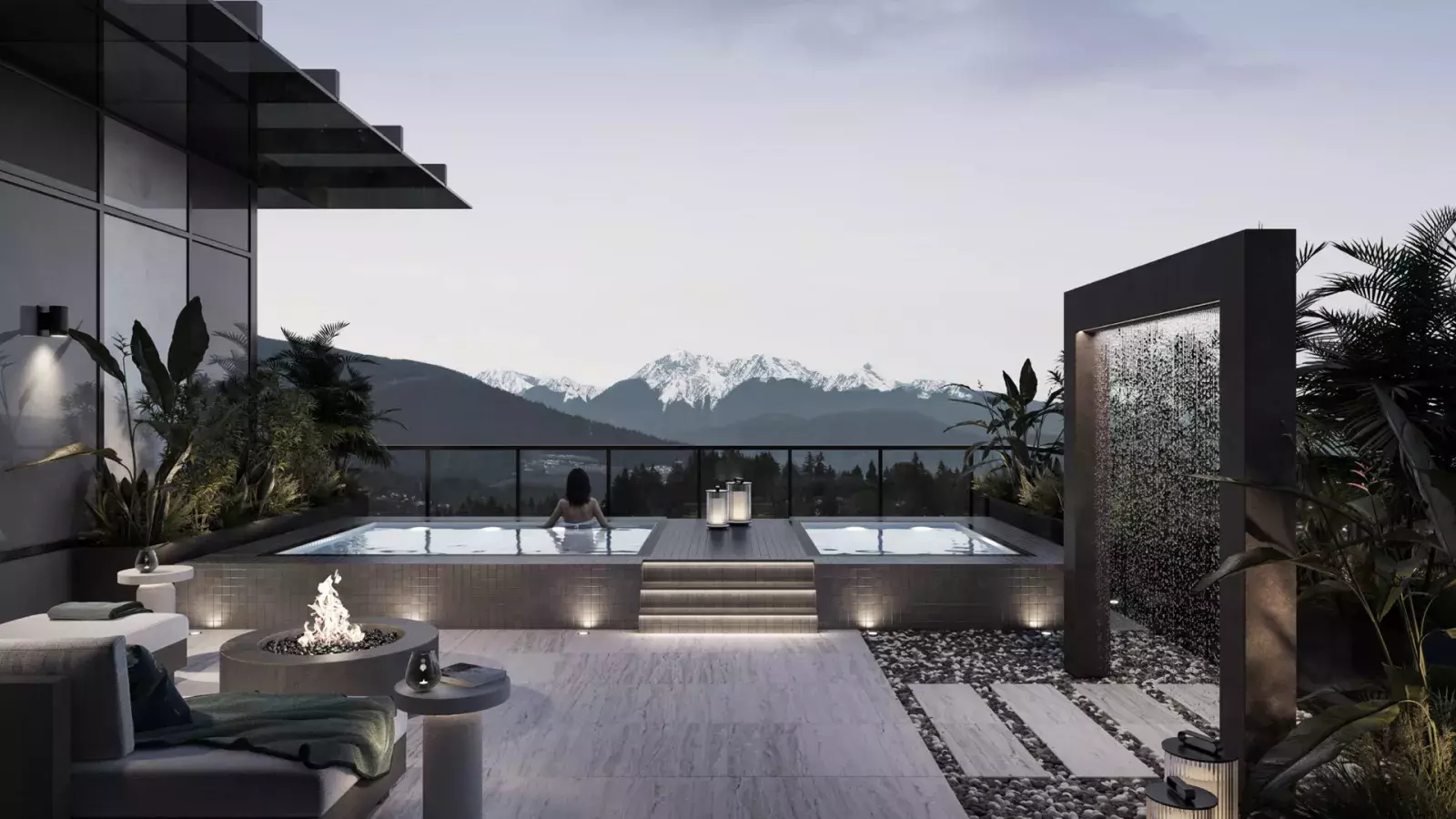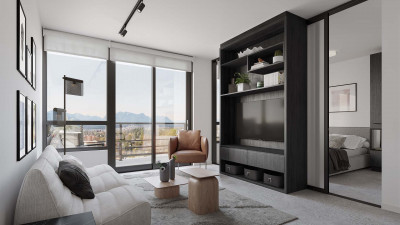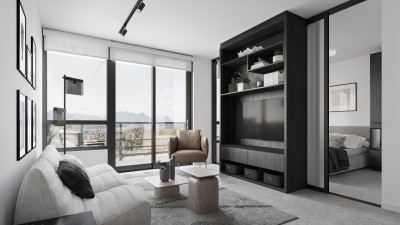The real estate industry in Metro Vancouver is seeing an increase in demand for living spaces that prioritize daily health and well-being habits while offering efficient and convenient in-home and amenity programming. Through a series of in-house data analyses, external research, and anecdotal evidence from leading industry experts, MLA Canada has identified several multi-family design trends that reflect evolving buyer needs. These trends indicate moving wellness design from a broader marketing lens towards deeper integration into building performance and increasing commitments to health and sustainability. As a part of the MLA Intel 2023 Report, this article will explore three key areas of focus: wellness, smart homes, and sustainability.
Wellness
Physical and Mental Health Amenities: Amenities encouraging residents to care for their health and well-being are becoming increasingly important in multi-family residential buildings. Fitness centres, yoga studios, and outdoor recreation areas promoting physical activity are becoming more common. Spaces designed for relaxation, such as infrared saunas, steam rooms, lap pools, and cold or hot hydrotherapy pools, are also gaining popularity.
Natural Materials Interiors: Using neutral colours and soft materials to create a calming and relaxing atmosphere is on the rise. Natural materials like wood, stone, and natural fibres add warmth, texture, and dimension to a space. Additionally, it's important to create living spaces that connect to nature, counteracting the feeling of disconnection from the natural world.
Smart Homes
Efficient Living Spaces: Technologies that make life easier and more efficient are a priority for homebuyers. Smart lighting, which has seen an increase of 50.5% year-over-year in industry growth, is one of the fastest-growing segments of the smart home market. It is convenient, user-friendly, and adds a sense of modernity to any building.
Integrated Technologies: Residents want the convenience of a centralized system that allows them to control multiple devices and systems through a single interface. Solutions like SmartOne offer a range of features that make life easier and more convenient, including license plate scanning to open the parkade gate, calling the elevator, accessing all doors in the building with their smartphone, and even participating in virtual fitness classes through a QR code in the gym.
Sustainability
Sustainable Construction: Sustainability is essential for multi-family residential buildings. Buyers are increasingly willing to pay for environment-friendly features, and regulations are being implemented to encourage sustainable construction. Projects are also adopting a more comprehensive range of sustainable design practices, such as providing car, e-bike, or scooter share amenities and plenty of secure bike storage with an integrated bike repair shop.
EV-Readiness: Electric vehicle charging capabilities for new homes in the City of Vancouver are mandatory. Since Jan 1, 2019, all new development permit applications must include a plan to be EV-ready for 100% of residential parking stalls (excluding visitor stalls). The growing popularity of electric vehicles drives this change, as Canada plans to transition to electric vehicles, with a goal of 10% of new car sales being electric by 2025, 40% by 2030, and 100% by 2040.
Sustainable Appliances: Induction stoves are poised to become a popular alternative to gas stoves. They are more energy-efficient, provide heat evenly across a pan, reduce the risk of burns and accidents, and bring a pot of water to boil twice as fast as a gas stove. However, most buyers are still more familiar with and prefer gas stoves, so education about the benefits of induction stoves will be essential in shifting the norm.
Air Conditioning: The need to address the impacts of our changing climate, such as the 2021 "heat dome," is driving the increasing requirement for air conditioning in new buildings. The City of Vancouver will require all new buildings to include air conditioning by 2025. This change is driven by the need to address the impacts of our changing climate, such as the 2021 "heat dome" demonstrating the urgent need for all homes to be equipped with air conditioning.
In addition to expanding on the above in depth, the MLA Intel 2023 report contains:
- Pre-sale and resale summaries.
- Key market spotlights.
- A detailed outlook on the months ahead.
With insights and analysis from MLA Advisory and MLA Canada's leadership team, the report is for everyone seeking a head start on real estate in 2023.


